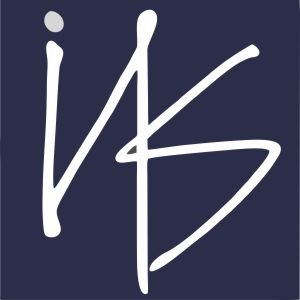Redesigning technical education
Engineering work is highly creative, which requires appropriate learning content and delivery methods. Jobs in the near future will require not only relevant knowledge, but also skills such as complex systems solving, critical thinking, creativity, human resource management, team coordination, emotional intelligence, judgement and decision-making, service orientation, negotiation, adaptive perception, etc.
IAS starting points and vision
Globalisation and extraordinary technological progress are bringing a series of social, ecological, economic and ultimately political changes, accompanied by demands for better quality education at a higher cost to education. Both in the Slovenian and international higher education space, the number of students is increasing and the mobility of students and higher education teachers has increased.
The developed world, and Slovenia with it, is moving towards digital transformation. We are facing challenges that herald a fundamental restructuring of the world as we knew it yesterday. Our children's environment is changing significantly faster than the changes in primary and secondary schools. The education system is relatively conservative, with programmes adapting too slowly to new challenges in society. Important competences are acquired not only at school but also in the work environment, e.g. work habits, responsibility for work and work results, adaptation to working in a team, vocational skills.
For further development, which should bring Slovenia even closer to the most technologically advanced countries, it will not be enough to have a skilled workforce, but to this end it will be necessary to train a larger number of highly educated breakthroughs, developers and innovators.
For our country to be known for innovative, export-oriented, high-tech companies that will be leaders in selected niches in the global market, it will be necessary to enter into a continuous process of upgrading technical education.
Slovenia will achieve a breakthrough and successful development in the company of the most developed countries if it embeds creativity, innovation, mutual respect and entrepreneurship throughout the education system at all levels - among young people in education, as well as among educators and mentors in business.
Knowledge is an asset that fulfils the individual and gives them their rightful place in modern society. Knowledge is a social asset that enables social inclusion, sustainable lifestyles and, consequently, a sustainable economy. All leading to a high quality of life and a fairer society.
In line with the Resolution on the National Programme for Higher Education 2011-2020, the IAS aims to contribute to the creation of a knowledge society, in particular by finding answers and recommendations to the challenges of science and technology education in Slovenia.
To this end, the IAS organised two thematic evenings, inviting as speakers prominent actors from the fields of education, business and politics, who gave a comprehensive presentation of the current state of play and presented a range of possible measures to further improve the situation.
Recommendations of the Slovenian Academy of Engineering for the renewal of technical education in Slovenia
Renew and continuously update the content of university pedagogical studies, which should address all areas of applied science and engineering.
We propose the introduction of a new Engineering subject in at least two years of general secondary schools (2nd and 3rd year) to support the development of technical creativity in secondary education.
The State should also complete the dual education system with the possibility of apprenticeships, regulate the financing of vocational schools and develop vocational education as a form of youth employment.
Explore the possibility of reintroducing the six-month internship in industry in first cycle vocational programmes in engineering and science, extending them by one semester.
Adequately reward successful and timely completion of studies and support teamwork.
Equalise the duration of studies and the duration of programmes, by improving the culture of teaching and learning (online study, tutoring, working with students in small groups, linking with mentors in industry, rewarding, etc.) and by limiting the use of the double additional year after the first and second cycle of studies.
Reintroduce the 6-month work placement in industry for first cycle courses in engineering and science, especially if higher vocational schools are retained.
The flow and increase in the number of PhDs into the economy should be urgently reinforced by the reintroduction of a young researchers programme from the economy and by stable scholarships, which argues in favour of the reestablishment of a technology and innovation agency.


